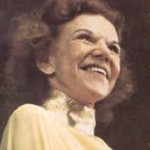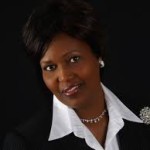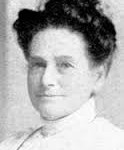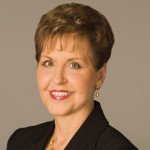When I challenge fellow believers about their acquiescence in the current prevalent practice in evangelical churches of allowing women to preach and teach in the pulpit and to serve as pastors and elders over the flock, contrary to the clear instruction of holy scripture, the most common single response is along the lines of ‘But what about …’ one well-known female minister or another. Joyce Meyer is often named, as are Jackie Pullinger, Cindy Jacobs, Kathryn Kuhlman, Teresa Wairimu, Heidi Baker, Leanne Payne and so on. It is argued that God has raised them up as leaders, that He blesses their ministry, and that there is much fruit from it, so that to hinder or restrict it would be to oppress God’s purposes and work through them.
In response, I say that God may well have called them into service to Him, but not as bible teachers or as holders of governmental authority in the church. To do so would be to contradict His own word. Derek Prince gave the following short exposition of ‘the ministries that are open to women, and the ones that are not open to women’ in a talk which he delivered in the 1990’s.
While in broad agreement with Prince’s conclusions, I do not quite agree with his proposition that it is only teaching ‘that implies the exercise of authority or government’ that Paul does not permit. After all, Paul explicitly says that he allows neither one nor the other. But it is probably true that the type of teaching that is in view here, in particular the teaching of church doctrine, can hardly be separated from holding a degree of authority.
Also, I do not see Paul as giving only a personal statement. He was approved by the Lord Jesus Christ Himself to be the apostle to the Gentiles, ‘a teacher of the Gentiles in faith and truth,’ so I do not see that we are free in Christ to choose to ignore what he taught us. But, since Prince did indeed choose to follow Paul’s directions, the conclusions are the same.
Areas of ministry open to women include the following:
1. Evangelism, including praying for the sick. There is nothing in the bible to prevent women preaching the gospel of Jesus Christ in public to lost sinners. It is true that we do not have biblical examples of this type of public preaching, but since it is not excluded, and given the clear evidence of fruitful ministry in the lives of Maria Woodworth-Etter, Aimee Semple McPherson, Kathy Kuhlman, Teresa Wairimu and others, we can thank and praise God for their lives and ministry and rejoice in His wisdom in raising them up as soul-winners.
2. The training of younger women by older women. Titus 2 instructs the older women to be ‘teachers of good things’, that is to:
train the young women to love their husbands and children, to be self-controlled, pure, working at home, kind, and submissive to their own husbands, that the word of God may not be reviled. [Titus 2:4-5]
I have the impression that Joyce Meyer may have this type of calling and gifting upon her life.
3. Prophetesses. I believe that Cindy Jacobs and Sharon Stone, for example, have genuine prophetic ministries.
4. Good works.
Religion that is pure and undefiled before God, the Father, is this: to visit orphans and widows in their affliction, and to keep oneself unstained from the world.[James 1:27]
Roland and Heidi Baker have been greatly used by God in the care of orphans, as was Gladys Aylward, for example, in her time.
5. Healing. Many women have gifts of healing and this may be conbined with wisdom and insight into human personality to bring freedom from sin and deliverance from demons, to enable growth into wholeness. Leanne Payne has been used by God to bring many out of homosexuality and other bondages of the soul.
A woman like Jackie Pullinger may be successful in pioneering a new work and establishing a church or churches through, in her case, evangelism and good works. If she is wise, she will as soon as possible appoint men to teach and govern the church, according to the scriptures. This type of pioneering ministry is apostolic in nature, and it may be relevant to note that Jackie Pullinger has been much used in imparting the gift of the baptism or infilling of the Spirit with speaking in tongues. Andronicus and Junia seem probably to have been an apostolic couple, in which case women are not definitely excluded from the office. It seems to me that a woman may have a form of apostolic ministry without being a teacher or exercising authority over men.
When women stay within the scriptural boundaries in their ministry they bring much blessing to both the church and the world. When they stray outside these boundaries, and begin to teach and to rule, they open the door to the enemy, and bring disrepute upon the bible by undermining its authority.
Andrew Chapman







